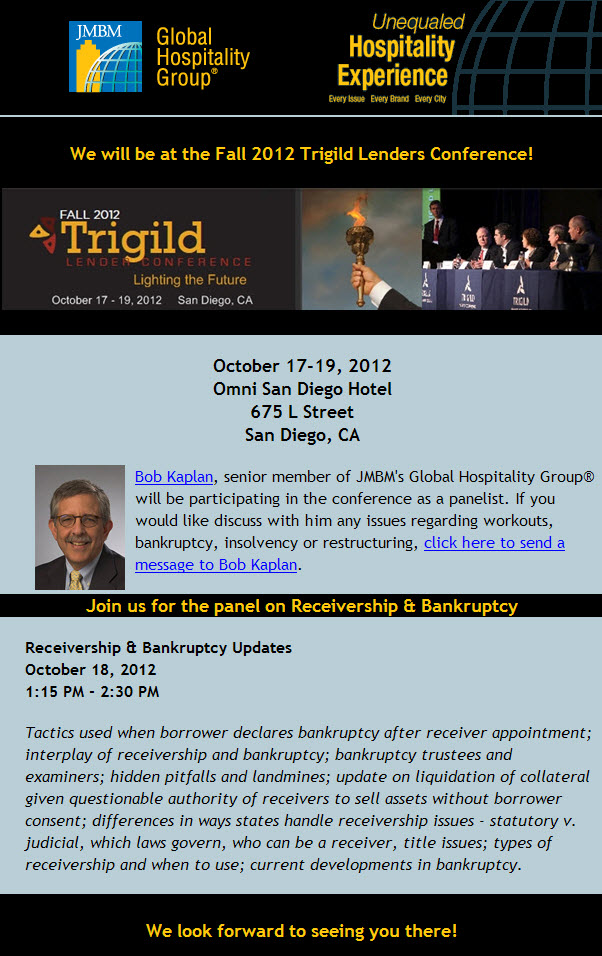17 March 2020
See how JMBM’s Global Hospitality Group® can help you.
Click here for the latest articles on distressed hotel loans, here for The Lenders Handbook for Troubled Hotels, and here for articles on the coronavirus.
Hotel owners, operators and lenders are under stress – hotel defaults, layoffs, and shutdowns loom. Prompt action is critical.
For the last three to five years the pundits have increasingly speculated that the longest economic recovery in history could not endure and that we were due for a recession. We hope that the extraordinary measures being taken now may defer some of the worst fears, but clearly the US economy has been plunged into distress, and the pain is particularly acute in hotels, restaurants and related travel and tourism businesses.
The shelter at home edits of the Federal, state and local governments are literally requesting that people stay at home for the next two weeks. Many hotels have plunged into single-digit occupancies and slashed revenues to cover fixed and operating expenses. Restaurants struggle to see if they can survive on takeout and delivery services alone. Furloughs and layoffs are imminent.
Lenders and borrowers alike are seeking relief, clarity, and resolution. It feels like some blend of the 1990s and 2008. And it is time to go back to the basics or distressed loans: Quick assessment, preparation of plans, transparency, communication, and cooperation for mutual benefit.
The lawyers who comprise JMBM’s Global Hospitality Group® have extensive experience and resources that can help hotel stakeholders answer these questions. The issues involved are too numerous to address in one article, and the answers will vary widely depending on each hotel asset and how it is structured.
Today’s article will address how the “structure” of hotel ownership and operations impact the interests of the various stakeholders.
Coronavirus: Creative strategies to mitigate financial impact
Loan defaults, lender rights & recapitalizations
by
Jim Butler and Guy Maisnik
JMBM’s Global Hospitality Group®
Facing the realities of low hotel occupancy and dwindling operating revenue
Lenders, equity providers, borrowers and operators are facing hard realities regarding the performance of their hospitality assets due to the Covid-19 pandemic.
What are the parties’ rights? What remedies can be pursued? What is the best approach for both the short term and the long term?
Understanding the structure of the hotel asset will help stakeholders answer these difficult questions.
The “operating business” is key
It is often said that hotels are a special real estate asset with an operating business. It really is the other way around: hotels should be thought of as a unique operating business first, within special purpose real estate. This is true not just for hotels, but for assets like timeshares, casinos, gasoline stations, movie theaters, and restaurants. The operating business comprises a large component of the asset’s value.
It is also the operating business that raises thorny problems when cash flow drops dramatically due to matters outside the control of any party – such as a global pandemic or a declaration of national emergency.
Identify and work with all stakeholders
It would be a serious mistake for any stakeholder to believe it holds all the cards in directing the final outcome on asset direction following a calamity. CONTINUE READING →




